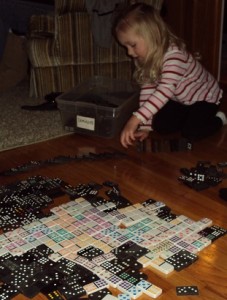Today’s date, February 13, has been red-circled on my calendar for many months, because it’s our 6th grandbaby’s due date.
Of course Linnea is the key player in this big event, and the rest of us are taking our cue from her. She’s not counting on meeting the new baby today, based on the tardy arrivals of babies #1 and #2. But as with every labor and delivery since Eve gave birth to Cain, no one can be sure. Without the medical intervention of C-sections or inductions, due dates are merely ballpark figures. Even the most experienced obstetrician doesn’t have a clue what triggers labor.
Lots of other due dates chase us through life, too, sprinkled from birth to death, most with negative connotations. We have due dates for taxes, applications, bills, permits, assignments, and payments, each one dangling over us like a weight about to fall. Maybe that’s why a baby’s due date is special: it’s linked with great joy, and we’re eager for it to arrive.
God has a couple of other mysterious due dates, too: our death date, and the end of the age. Those three dates, birth, death, and Christ’s return, are secrets we’re not privy to, until God is ready to reveal them.
And that last one is especially critical, because no matter what birth and death dates we end up with, the day Jesus arrives on earth will be the only one of global import. When we meet him on that third date, whether sooner or later, the calendar number won’t matter as much as what we’ve done about him between dates one and two.
Meanwhile, God is patiently waiting for each of us to make preparations for that day. He wants us all to anticipate his coming with the same eagerness we feel in anticipating the birth of a baby. And God wants us all to be ready.
Linnea and Adam have done everything possible to prepare for their baby’s imminent arrival, whether it’s today or a week from today. Now it’s up to God. After all, he’s the one who holds the secret to the specific birth date.
And I have a feeling he’s going to let us in on that very soon.
“With the Lord a day is like a thousand years, and a thousand years are like a day. The Lord is not slow in keeping his promise, as some understand slowness. Instead he is patient with you, not wanting anyone to perish, but everyone to come to repentance. But the day of the Lord will come…” (2 Peter 3:8-10a)







